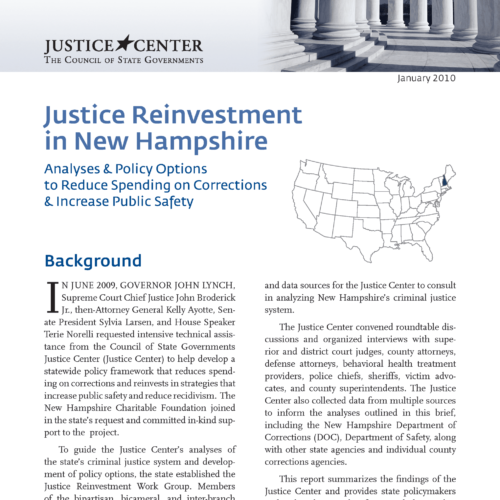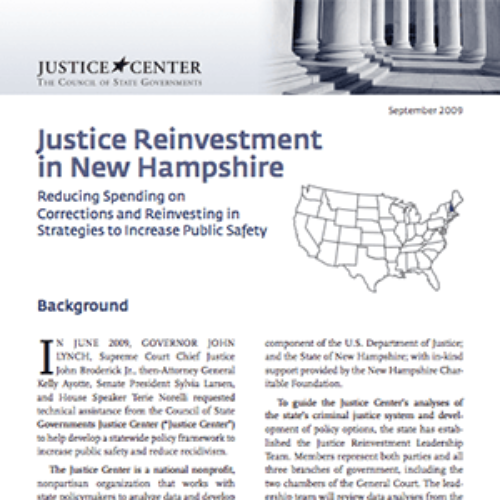Justice Reinvestment in New Hampshire
The Problem
While crime and incarceration rates in New Hampshire are low, a large portion of the incarcerated population has an identified mental illness or substance use disorder, and initial data indicate that behavioral health needs drive jail incarceration and supervision revocations to prison. The behavioral health needs in New Hampshire are tremendous, but mental illness and substance use disorder treatment and service providers are limited in their ability to meet these needs generally, let alone for people in the criminal justice system. Initial indicators suggest that health costs, including those for people with behavioral health challenges, drive up costs for the state’s and counties’ criminal justice systems.
How JRI Is Helping
In early 2022, state leaders in New Hampshire launched a Justice Reinvestment effort for the second time (the first effort took place from 2009 to 2010). The focus of this effort was to address people with mental illnesses and substance use disorders (behavioral health) who are high utilizers of the public health and safety systems. For the project, CSG Justice Center staff conducted extensive analysis of case-level data from county jails as well as Medicaid claims data from the Department of Health and Human Services (DHHS). Examining these data revealed information about local trends in jail populations, including behavioral health needs, participation in treatment and services within jails, and services accessed by people before and after incarceration. The data analysis and stakeholder engagement informed administrative policy recommendations for New Hampshire state leaders.
In late 2023, state leaders in New Hampshire requested additional technical assistance to expand the data analysis to include Department of Corrections data and behavioral health-related Medicaid claims from DHHS and to implement the administrative policy recommendations from the first round of analysis.
Next Steps
In the summer of 2024, the CSG Justice Center partnered with state leaders to deliver data-driven recommendations for legislative policy and practice changes that address the individual needs of people with mental illnesses, substance use disorders, or co-occurring disorders in both community and correctional settings. If New Hampshire adopts these recommendations through legislation or administrative policy, state leaders will be eligible to apply for additional technical assistance during implementation.


















